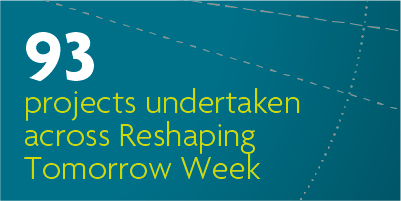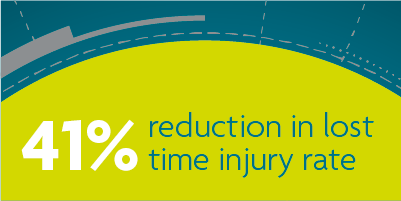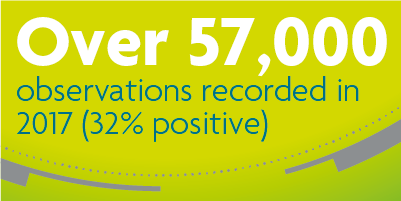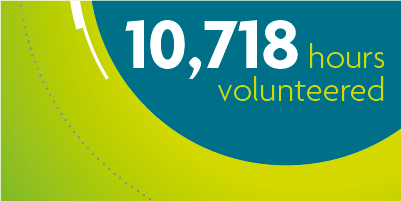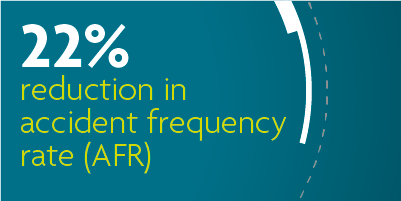OUR JOURNEY TO ZERO HARM
Our mission is to achieve Zero Harm through a programme of continuous improvement that addresses behaviours and embeds best practice across the Wates Group.
In 2015 we embarked on a new journey to 2020 – setting a clear five-year plan with measurable goals. At the heart of our plan we committed to a culture of zero harm – ensuring the safety, health and wellbeing of everyone who works with us; creating positive environmental and social impact, being an employer of choice where everyone is valued and respected and seeking new ways to ensure the buildings we build and maintain are sustainable for the future. 2017 marked our halfway point and we’re making great progress. Highlights of the year were being recognised as Organisation of the Year at the inaugural UK Social Mobility Awards and hosting our first Reshaping Tomorrow Week. Building on the success of previous Community Weeks we encouraged our people to volunteer and support projects across the Reshaping Tomorrow priorities, with 93 projects undertaken and 10,718 hours volunteered across the one week.
OUR JOURNEY TO ZERO HARM – ENSURING THE SAFETY, HEALTH AND WELLBEING OF EVERYONE
Safety is a mindset. Through our programme We’re Safer Together, we continue to make great strides in championing the right behaviours across the business and with our supply chain to keep people safe and healthy.
2017 continued to be another great year. Through a clear vision and strong leadership commitment we ensured a positive safety culture on our sites and offices. Our overall Accident Frequency Rate was down by 22% against 2016 and our Lost Time Injury Rate by 41% in the same period. This placed Wates’ Accident Incident Rate (number of injuries per 100,000 workers) the best of all Build UK companies.
As well as a great performance against our KPIs and our industry peers, these results translated to two fewer legally reportable (RIDDOR) injuries and 17 fewer Lost Time Injuries to our employees and supply chain operatives, as well as nine fewer injuries to members of the public, all despite an increase in the number of hours worked of more than 5 million. Simply put – more people who came to work for us in 2017 went home safe and healthy at the end of the day.
Occupational Health
Over 80,000 workers in the construction industry suffer work-related ill health every year. In 2017, we established a Wellbeing Committee to focus on nurturing a health and wellbeing ethos and empowering and enabling people to make informed lifestyle choices. With one in four people thought to suffer from mental health issues in any year, mental health continued to be a growing issue in both society and the construction industry. This was behind the introduction of Mental Health First Aider training with over 40 of our people being trained over the year. This coupled with over 1000 health assessments and being the first contractor to have a FitWel certified London office established our commitment to the health and wellbeing of our people.

Leading the change
Creating the right environment and leadership behaviours is critical if we are to achieve our goal of Zero Harm. We continued to deliver our ‘Lead the Change’ behavioural programme with over 200 people completing in 2017. We recognise that every leader has a unique position to influence health and safety – they set the conditions, control the resources and create the culture. Lead the Change provides them with the tools and vision to achieve this.


Consistent approach to safety
We encourage everyone working on our sites to ensure their place of work is safe; that they have a safe system of work and to look out for each other. Our Stop/Go observation tool enables everyone to record observations – both areas for improvement or good working practices to help us measure progress towards a safer working environment. Over 57,000 observations were recorded in 2017 – 32% of these were positive observations. This was a 38% increase on 2016. In 2018 we will launch an app version of Stop/Go making it even easier to upload observations.

